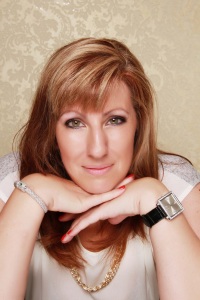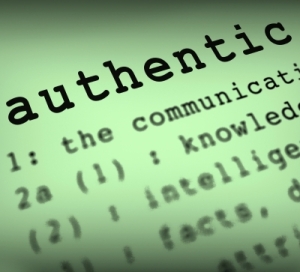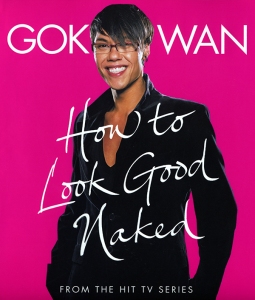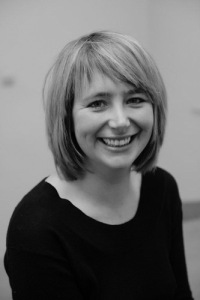Most of the time, I work with authors from the outset of their writing journey – as a continual sounding board, mentor, coach and fount of all knowledge (or font, for those literary rebels out there).
But sometimes I’m referred to, or meet, authors who have already completed the first draft of their book and find themselves unsure of what to do next.
Typically, these authors understand the gist of publishing and have explored different routes to market. Most realise (thankfully) that, to be taken seriously as a writer, you should ideally have a serious product – one that looks professional, and which has been produced, arranged and refined to the same standards as all the other titles on a bookshop’s shelves.
 Such a question, of whether their book is any good, often stems from a lack of confidence – even if the author doesn’t realise this is the case. As soon as it comes to the crunch and their work may be judged, doubt tends to spring. They’ve lived with this book for so long that they now find it hard to be objective or to see the wood for the trees. They’re so close to the story that they can’t really tell whether it will make readers laugh/cry/squirm/wonder, etc., etc.
Such a question, of whether their book is any good, often stems from a lack of confidence – even if the author doesn’t realise this is the case. As soon as it comes to the crunch and their work may be judged, doubt tends to spring. They’ve lived with this book for so long that they now find it hard to be objective or to see the wood for the trees. They’re so close to the story that they can’t really tell whether it will make readers laugh/cry/squirm/wonder, etc., etc.
This is a common position for an author to be in. So much so, the sentence I hear the most is: “I just want someone to tell me if my book’s any good.”
But therein lies the problem. That’s too broad a question to answer. The book may be good at making people laugh, but if it’s meant to be a poignant, moving, true account of a tragedy, it’s not good.
If a reader finds the story does what is says on the tin, i.e. it moves or provokes them in the way the authors intends, then that could be grounds for success. But, if that same reader gives up halfway through because the book leaves them with too many unanswered questions, or they’re turned off by shallow characters, the limp plot or unrealistic scenes and situations, then it’s also not good.
If it mirrors another title too closely; if it contains material that breaches copyright; if it’s based on someone who’s still living and who can be identified through the text…it’s not good.
And the worst sin of all: if it’s simply ‘an okay read’, in my eyes, it’s actually not good. There are more than fourteen million books on the market, and I’m sure we could all point to at least a handful that are mediocre – if not more. Think about that for a minute. There are already rubbish books for sale on the open market, covering every subject; your book won’t just have to fight to be seen against popular titles, it’s got to stick its head above the crap too.
As each year goes by it gets harder for authors to realise any sort of visibility, largely due to self-publishing bulldozing its way through the industry. On the flip side, it’s now easier than ever to get your book to market, largely due to self-publishing its way through the industry. Give yourself a head start and make your book as good as it can be before you let it loose.
So who can tell you whether your book is any good – for all the right reasons, and in all the right places? After all, given that writing is subjective, isn’t it all just people’s opinion on some level?
Making headway in a commercial market is something that can be planned and measured. Your next door neighbour may think your book is the best he’s/she’s ever read, but can they tell you where your readers are to be found? Can they pinpoint your book’s USP against its competing titles? Can they structure your book promotion so that it’s appropriate and achievable? Probably not. In those contexts, only certain people can answer your question: “is it any good?” People like me.
Starting with a critique, I’ll evaluate your book against multiple parameters. I’ll help you shape your content to make it fit for purpose, polished – and above all, readable. Not in the context that the spelling is addressed, but whether a reader would get to THE END. Or if they’re more likely to ditch it halfway through.
So, you’ll understand why I may inwardly groan when I’m asked by an author whether their book is any good. I sometimes feel like replying with a question of my own: “How long is a piece of string?”
Joking aside, I get why the author needs to know this, and why it’s essential at that particular point in the process. I understand, as publishing draws near, why they suddenly feel a little protective and precious about the product of their time, energy and creativity.
It may be literary feedback they’re in need of, but what they’ll actually get is a reality check, a confidence boost and some much-needed strategic advice.
Developmental editor and publishing consultant Diane Hall is the author of three books; she has also ghost-written books for others and created a plethora of content, on more subjects than you could care to imagine, for numerous clients since the beginning of her career. She is proud to have fundamentally shaped series of books and more than a hundred individual titles over the last decade with various authors, nationally and internationally.
 Among her editing qualifications, she holds a linguistics diploma, which involves the study of language and speech. Diane employs this knowledge in the forensic linguistic work she is sometimes asked to undertake.
Among her editing qualifications, she holds a linguistics diploma, which involves the study of language and speech. Diane employs this knowledge in the forensic linguistic work she is sometimes asked to undertake.
Diane has seen the introduction and subsequent rise of self-publishing, and passionately keeps abreast of its disruption of the publishing industry. She is a thought leader when it comes to the future of book marketing, fuelled by the poor results authors see when employing traditional techniques.
Thanks to graur razvan ionut at freedigitalphotos.net for use of the main image.

 If most authors are happy ‘just writing’, tell me: why do so many insist on bending the truth when promoting their book? At what point does this desperation to be noticed set in?
If most authors are happy ‘just writing’, tell me: why do so many insist on bending the truth when promoting their book? At what point does this desperation to be noticed set in? You’ve sat with your story for months – years, even. It’s a part of you. You care about your book as much as your offspring; in many ways, it’s as cherished as another child would be.
You’ve sat with your story for months – years, even. It’s a part of you. You care about your book as much as your offspring; in many ways, it’s as cherished as another child would be.






